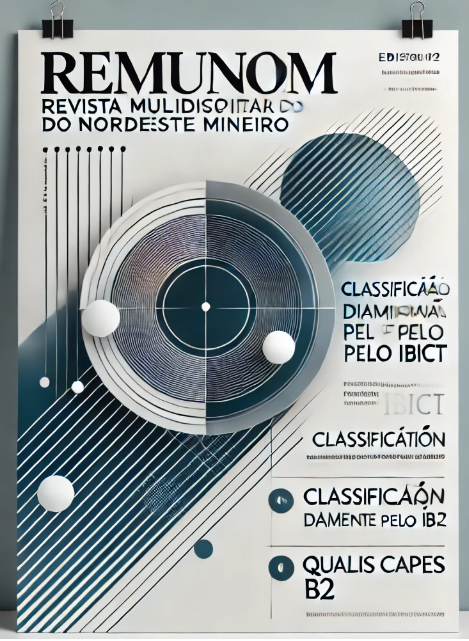Analogy Between Learning Theories (Environmental, Innatist, and Interactionist) from the Perspective of Childhood with the Movie Matilda (1996)
DOI:
https://doi.org/10.61164/rmnm.v7i1.3729Keywords:
Child. Childhood. Learning theories. Family. Education.Abstract
The aim of this article is to draw an analogy between learning theories based on the theorists Burrhus Frederic Skinner (1904-1990) with the environmentalist theory; Jean-Jacques Rousseau (1712-1778) with the theory of innatism; Jean Piaget (1896-1980) and Lev Semenovich Vygotsky (1896-1934) with the theoretical conception of interactionism. Based on these theories, the article portrays the different conceptions of education presented in the film Matilda (1996), enabling an analogy. We know that families are different from one another, just as other figures responsible for the formation of every human being—parents, family, school, teachers, and society in general—have different perceptions both of the child and of childhood. Learning theories refer to ways of grasping the world, society, and human beings, providing us with a guide for what best adapts and consequently influences teaching and learning processes, such as environmentalism, which presents a directive pedagogy; innatism, which dictates a non-directive pedagogy; and interactionism, whose pedagogy is relational. Thus, the article seeks, through learning theories, to discuss how childhood is represented by different perceptions and educational practices, based on the examples presented by the characters in Matilda (1996), and to present the environmentalist, innatist, and interactionist conceptions, while reflecting on the concepts of childhood and infancies, with an emphasis on childhood as a social category. The article concludes with final considerations.
References
BRASIL. Ministério da Educação. Base Nacional Comum Curricular. Brasília, DF: MEC, 2017.
BRASIL. Ministério da Educação e do Desporto. Secretaria de Educação Fundamental. Referencial Curricular Nacional para a Educação Infantil. Brasília, DF: MEC/SEF, 1998. 3 v.
BRASIL. Lei nº 9.394, de 20 de dezembro de 1996. Estabelece as diretrizes e bases da educação nacional. Diário Oficial da União: seção 1, Brasília, DF, p. 27833, 23 dez. 1996.
BRASIL. Ministério da Educação. Conselho Nacional de Educação. Câmara de Educação Básica. Resolução nº 5, de 17 de dezembro de 2009. Fixa as Diretrizes Curriculares Nacionais para a Educação Infantil. Diário Oficial da União: seção 1, Brasília, DF, p. 18, 18 dez. 2009.
DAHL, Roald. Matilda. Tradução de Érico Assis. São Paulo: WMF Martins Fontes, 2010.
Danni. Resenha: Matilda – Clube do Farol. Clube do Farol, 27 de setembro de 2022. Disponível em: https://www.clubedofarol.com/2022/09/resenha-matilda.html?m=1.
KRAMER, Sônia. A infância e sua singularidade. In: BRASIL. Ministério da Educação. Ensino Fundamental de nove anos: orientações para a inclusão da criança de seis de anos de idade. Brasília: FNDE, 2006. Disponível em: http://periodicos.unesc.net/amicus/article/viewFile/534/526.
MATILDA. Dirigido por Danny DeVito. TriStar Pictures, 1996.
PIAGET, J. (1973). Para Entender é Inventar: O Futuro da Educação. Viking Press.
ROUSSEAU, J.-J. Emílio ou da Educação. Tradução: Roberto Leal Ferreira. 3 ed. São Paulo: Martins Fontes, 2004.
SCLIAR, Moacyr. Um país chamado infância. São Paulo: Ática, 1995.
SISTEMA POLIEDRO. O que é pedagogia afetiva? Disponível em: https://www.sistemapoliedro.com.br/blog/o-que-e-pedagogia-afetiva. Acesso em: 5 mar. 2025.
SKINNER, B. F. Ciência e Comportamento Humano. Free Press, 1953.
SKINNER, B. F. O mito da liberdade. 3 ed. São Paulo: Summus, 1983.
SULZBACH, L. A Invenção da Infância [documentário], 2000.
VYGOTSKY, Lev S. A formação social da mente. São Paulo, M. Fontes, 2007.
WALLON, Henri. A evolução psicológica da criança. Trad. de Cristina Carvalho. Lisboa, Edições 70, 1941/1981.
Downloads
Published
How to Cite
Issue
Section
License
Copyright (c) 2025 Revista Multidisciplinar do Nordeste Mineiro

This work is licensed under a Creative Commons Attribution-NonCommercial-ShareAlike 4.0 International License.




